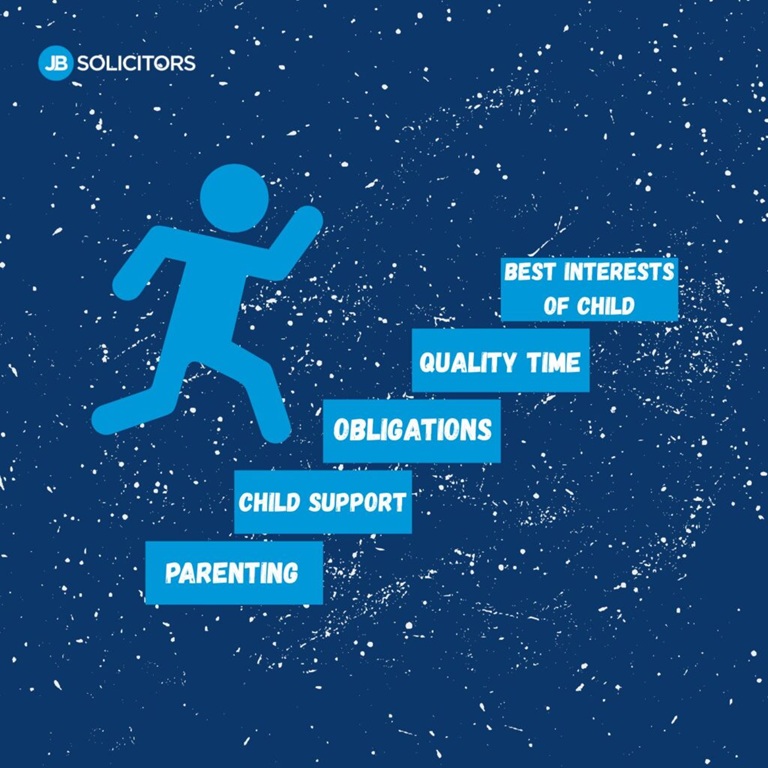- within Family and Matrimonial topic(s)
- within Transport, Insurance, Government and Public Sector topic(s)

Step-parents continue to emerge as people who want to take the role of a parent. Even though they are not the biological parents of a child, they do their duties willfully and with consistency!
A person usually becomes a step-parent when they marry a widow or widower, or when they adopt a child. While unconventional, aspiring parents do well as parents and sometimes even better than biological parents! Over time, their own lives change as they learn to be a part of a new family.
Despite being a common term used worldwide, this definition is also a legal term under Section 4 of the Family Law Act 1975. These parents may be referred to as stepfathers, stepmothers, or foster parents.
The step-parent may or may not legally adopt the step-children of their de facto partner or new spouse. However, they play a significant role in their upbringing and daily lives. Step-parent relationships are valid in Australia just like standard forms of relationships. However, the legal rights and responsibilities of a step-parent vary depending on the state or territory they live in.
Parental Responsibility
Parental responsibility refers to the legal rights and obligations of a parent regarding their child. It includes making decisions about a child's upbringing, such as where they live, their education, and their medical treatment. So, a person who becomes a step-parent will eventually carry this responsibility for a child's welfare.
In most countries, including Australia, both biological parents have equal parental responsibility unless it is altered by a court order. In the case of step-parents, they may obtain parental responsibility through adoption or by obtaining a court order.
What Obligation and Rights Does Adoption Give?
Adoption is a family structure that is only permitted by courts when parenting orders are inadequate to protect a child's well-being. If a step-parent adopts their partner's child, they are granted the same parenting responsibility as the child's other biological parent. This includes all the obligations, rights, and privileges that parents are legally granted with regard to their own children.
Step-parents are eligible to adopt if they:
- Are married to the child's biological parent
- Have been in a de facto relationship with the child's biological parent for two or more years.
Court Orders Can Also Provide Parental Responsibility!
The family court may issue a parenting order or a consent order as an alternative to adoption to obtain parental responsibility. A parenting order may deal with:
- Who the child will live with
- How much time will the child spend with each parent and with other people. This includes grandparents, aunts, uncles, a blended family, or relevant people from either partner's previous relationships.
- The allocation of parental responsibility
- How will the child communicate with a parent they do not live with or other people
- Any other aspect of the care, welfare or development of the child.

Can a Step Parent Get Visitation Rights?
We all know divorce causes tensions between parents. Courts rarely grant full custody to one parent because it goes against the child's best interests. Unless there is a risk to the child's health and safety, courts will ensure that both parents are able to spend time with their child.
Now, a step-parent may wonder if they even get a chance to see their child after a divorce. Unfortunately, step-parents do not have automatic legal rights to visit their partner's children like their family members.
But, a condition in the child's best interests principle may be able to turn this around. A step-parent is a person who may be important to a child's life. So, if you've been a good parent or believe that you are an important person in your child's life, then you are entitled to spend time with or visit them regularly.
For this to happen, the court must determine if the visit is in the best interests of the child, along with the following factors:
- The views of all parties involved
- How each biological family and/or parent treated the child concerned
- Biological and step-parent
- The child's relationship with extended or blended families
- Age of the child
- Family traditions
- Any other relevant factors that fall under the best interests of the child
So, I Can See My Stepchild After a Divorce, Right?
Yes, you, as a step-parent, are eligible for visitation rights after divorce! Although the specifics of how they are granted depend on the circumstances. Do you have a good relationship with your stepchild? Are they constantly seeking your presence and quality time with you?
Your ability to obtain visitation is restricted if you divorce the child's biological parent before a parenting order is made. However, they may still work out a visitation schedule with the parent if they are on good terms.
Who Will Pay Child Support?
Step-parents are not usually required to pay child support or child maintenance. These two types of financial support for children are often used interchangeably; however, they have differences. Child support is used for children under 18, while child maintenance is used for children over 18.
If you are the primary caregiver or breadwinner of the family, then you will have an obligation to pay child support. On the other hand, your ex-spouse must also contribute to the child support. To help with child support calculations, the Child Support Agency (CSA) in Australia uses the following to help determine the amount that needs to be paid:
- Income of both parents
- Amount of time the child spends with each parent
- Other pertinent considerations
So, both parents will need to pay since this is a legal responsibility, regardless of their relationship status.
FAQs About Being a Step-Parent
| Q: Can a step-parent become a legal guardian for
their child? A: Yes. In NSW, step-parents may apply for legal guardianship at the NSW Supreme Court or at the Guardianship Tribunal. The majority, if not all, states have similar legislation. However, the tribunal cannot issue an order for children under 16. Only parenting and adoption orders may allow step-parents to gain legal guardianship for children under 16. |
| Q: Can a step-parent access their step-child's
health information? A: Parents and/or step-parents do not have an automatic right to access the health information of a child under their care. However, in certain circumstances, they may be able to access such information if the: – Disclosure is necessary to lessen or prevent a serious and imminent threat to a person's or a child's life, health, or safety – Child cannot physically communicate his/her consent to the disclosure – Disclosure is made for compassionate reasons |
| Q: Can children receive inheritance from a
step-parent? A: Yes! Step-parents may distribute their estate to children under their care in their Will. However, this is not compulsory, and step-parents may opt not to provide their stepchildren with any form of inheritance. Stepchildren may still apply to family courts to receive an inheritance through a Will contest or challenge. Do you have an unruly child or stepchild? Are they undeserving of your estate? If so, you can click here to know how to disinherit your child out of your Will. |
| Q: Can step-parents change the name of their
child? A: A step-parent may change the name of their step-children even if there are no adoption orders in force. However, they should seek permission from the non-custodial parent since this falls under parental responsibility standards. The step-parent may apply to the NSW Registry of Births, Deaths, and Marriages for their step-child's name change. |

Can Step-Parents Seek Legal Advice After Divorce?
By all means, anyone can seek legal advice when they can't navigate a difficult legal matter. Step-parents are no exception. Our team of family lawyers at JB Solicitors believe that step-parents also care about the best interests of the child, and so they should get as many rights as biological parents.
Hence, we can help file necessary documents that can help step-parents gain legal guardianship of their step-children. We have mediation and arbitration services for parties who want to come to terms if they have family member disputes.
Contact us today if you want to further understand your rights and legal obligations as a step-parent.
The content of this article is intended to provide a general guide to the subject matter. Specialist advice should be sought about your specific circumstances.


